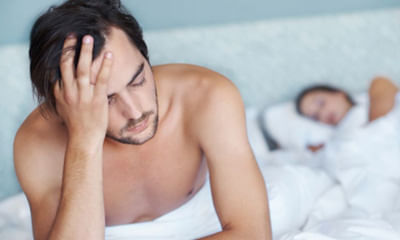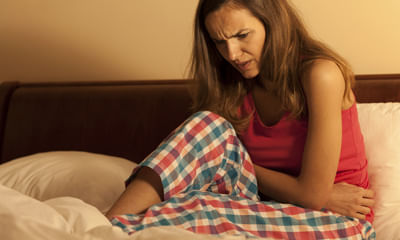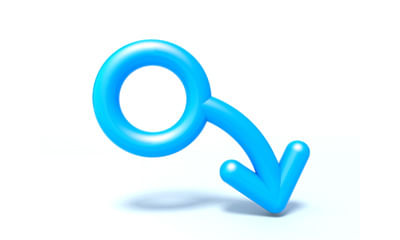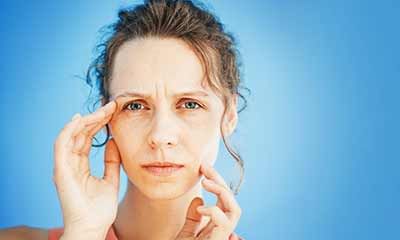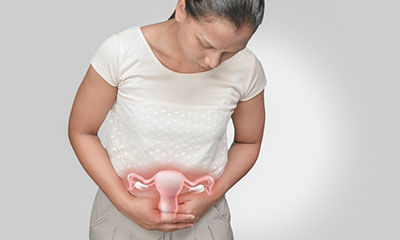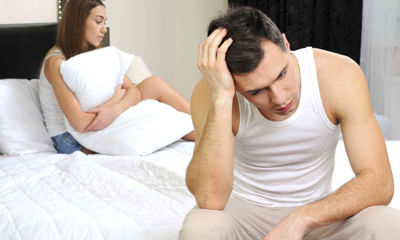Hormonal Changes After Marriage
My husband of age 30 has ed and I got to know one day after my marriage. Can't erect at all or max 40 seconds. I am not ...
Ask Free Question
Hello- the causes of impotence varies. Erections result from a complex combination of brain stimuli, hormonal actions, and blood vessel and nerve functions. Any interference with with these factors can lead to impotence. Other contributing causes of impotency include alcohol, cigarettes, arteriosclerosis, sexually transmitted diseases, high blood pressure, hormonal imbalances (such as low levels of thyroid hormones) or abusive masturbation. In some instances, impotence results from the lack of sexual desire. This cause may be linked to the loss of attraction to a partner, but it can also result from depression, illness or medications. There are over 200 drugs that may cause impotence. Some of the most common are antidepressants, antihistamines, antihypertensives, blood-pressure medication, cancer chemotherapy, diuretics, narcotics, nicotine, sedatives, steroids, stomach acid inhibitors and ulcer medications. Fortunately, it is permanently curable by ayurveda.
Before I checked sperm is very well. After married 2 years doctor said low sperm. May I know what is a reason? ...
Ask Free Question
Age: Sperm production can decrease with age, although this decline is typically gradual. If you were tested when you were younger and have now aged a few years, it's possible that age-related changes could be a factor. Lifestyle Factors: Changes in lifestyle habits or environmental factors after marriage could contribute to a decrease in sperm count. For example, increased stress, poor diet, lack of exercise, smoking, excessive alcohol consumption, or exposure to environmental toxins could all impact sperm production. Health Conditions: Certain medical conditions or infections can affect sperm production and quality. It's possible that you developed a medical condition or infection after marriage that contributed to the decline in sperm count. Medications: Some medications can affect sperm production. If you started taking any new medications after marriage, it's worth considering whether they could be impacting your sperm count. Varicocele: Varicocele is a condition characterized by swelling of the veins in the scrotum, which can lead to reduced sperm production. It's possible that you developed a varicocele after marriage, which could contribute to a decline in sperm count. Stress: Stress can affect hormone levels and sperm production. If you experienced increased stress levels after marriage, this could potentially impact your sperm count. Other Factors: Changes in sexual activity, frequency of ejaculation, or timing of intercourse could also play a role in changes in sperm count. REGARDS DR MS HAQUE
We had for the first time after our marriage. The first periods she had after our sexual intercourse, she had excessive ...
Ask Free Question
Hi, Lybrate user, •she might suffers from dysmenorrhoea being a common phenomenon before or after intercourse owing to hormonal changes in girls. • tk, plenty of water to hydrate herself ,to eliminate toxins ,nourishing her body ,establishing her normal flow. • go for meditation to reduce her stress, anxiety to calm her nerve easing her stress in order to improve haemoglobin level. • her diet be simple, non- irritant, easily digestible on time to maintain her digestion, avoiding gastric disorder, minimising cramp abdomen •tk, apple,carrots, cheese,milk, banana,papaya, pomegranate, spinach,almonds, walnuts to feel energetic improving haemoglobin level. •consult ,privetly for a faster recovery, till, then take, homoeopathic medicine, underlying: @ pulsatilla 30ch-5 drops ,thrice. •ensure, sound sleep in the night for at least 7 hrs.• avoid, caffiene,junk food, dust,smoke, exertion tk, care,
Hi i'm rakesh I need to treatment for zero sperm count permanently. I have not done any test but I feel I don't have tha ...
Ask Free Question
Consult a healthcare professional: schedule an appointment with a urologist or reproductive endocrinologist to discuss your concerns. They can conduct tests to determine the underlying causes and suggest appropriate treatment. Lifestyle changes: healthy diet: consume a well-balanced diet rich in vitamins, minerals, and antioxidants. Include foods that support reproductive health, such as fruits, vegetables, whole grains, and lean proteins. Exercise: regular physical activity can improve overall health, including reproductive health. Aim for at least 150 minutes of moderate-intensity exercise per week. Avoid smoking and excessive alcohol: both smoking and excessive alcohol consumption can negatively impact fertility and sexual function. Maintain a healthy weight: obesity can be linked to infertility. Achieving and maintaining a healthy weight through diet and exercise may positively affect reproductive health. Manage stress: chronic stress can affect hormonal balance and reproductive health. Practice stress-reduction techniques such as meditation, yoga, or deep breathing exercises. Avoid exposure to toxins: reduce exposure to environmental toxins, such as pesticides, heavy metals, and certain chemicals, as they may contribute to fertility issues. Medical treatment: depending on the specific diagnosis, medical treatments may include hormone therapy, surgery, or assisted reproductive technologies (art) like in vitro fertilization (ivf). Regards, Dr. Ms. haque.
I am 27 years old and unmarried. The doctor suggested isotretinoin 20 for my pimples but after taking this medicine all ...
Ask Free Question
not like that... treatment depends on the grade...Acne or pimples... Due to hormonal changes..Oily skin causes it...Common in adolescent age...May occur in adults also.. Food like Oily foods, ice cream, chocolate and sweets increase it.. Treatment depends on the grade of pimples or acne..So, please send photos by direct online consultation as it's a must to see which grade of pimples or acne for accurate diagnosis and treatment.
Hey I am 20 years old female and in physical relation from last 4 years with my boyfriend and I have pcos and 2 years ag ...
Ask Free Question
Pcos is a disease where there is a hormonal imbalance. Depending on your complaints, examination, reports, and stage of life treatment differs, and it also needs more time to get yourself treated with patience. Meet gynecologist in whom you have trust as you will need to go for a long time to him/her. Overweight is very common so in case you have that reduction of weight helps tremendously. In pcos ovulation- release of an ovum is deranged because of hormonal changes. So long time different trials are required to treat same so with patience continue consulting gynecologist or infertility specialist in whom you have trust. Keeping all these in mind better to get married early and have pregnancy early.
I am 23 years old male. I have masturbated since 2013 now my dick is small ,my testes are smaller when I cum little or n ...
Ask Free Question
Hello hypogonadism is a condition that occurs when the body's sex glands, the testes for males and ovaries for females, produce little or no hormones. For males with hypogonadism, low testosterone can affect the development and maintenance of male reproductive organs, including the testes, penis and prostate. In fact, low testosterone levels can lead to issues like reduced muscle strength, hair loss and infertility. In ayurveda, hypogonadism usually presents as shandhatva or napunsakta. It means inability to sire a progeny by either. In case your tests shows abnormal hormone levels and you experience the signs and symptoms for the same, don't worry. Ayurvedic vajikaran therapy (which includes, aphrodisiac herbs), and some simple lifestyle and dietary changes can help you recover naturally.
I am 57 year old virgin male & wish to marry a young age girl around 35 - 40, in view of getting a child. I observed my ...
Ask Free Question
Hello- as the body ages, it experiences a multitude of changes, some good, others, not so much. From the sudden weight gain to the lack of sexual desires, men and women outside their middle ages suffer from new dilemmas. Some men and women enjoy a healthy sex life well into their 70s; others, up till their 50s. A healthy body requires proper dieting and exercising, and a healthy sex life too requires a proper stream of hormones to keep an erection hard. But as men their bodies produce less and less hormones, resulting in less and less sex. Fortunately, vajikaran treatment of ayurveda can restore your lost strength.
I’m interested in the male sexual problems hello sir. Im 26 years (virgin)(unmarried) male. Having dust allergies. And h ...
Ask Free Question
Hello over stimulation of the penis can lead to persistent softness of an erection, while the disappearance of a morning erection can signify a hormonal imbalance. Weak erections can vary, from poor blood circulation to anxiety issues, but for men who over masturbate, the weakness can occur because of a hormonal imbalance. Masturbation also when done in excessive amounts, masturbation teaches you how to reach an orgasm more easily which later changes into premature ejaculation. Fortunately, it can be cured by ayurveda.
My age is 26 & am married and suffering with pcod for long time. My weight is 67 kg. I cure my pcod and got regular peri ...
Ask Free Question
Pcod/pcos is a common hormonal disorder in women which can lead to weight gain and irregular periods. While most women depend on pills to deal with it, these simple changes in your lifestyle will help you deal with the condition in a better way. 1.Nutritional approach: deficiency of micronutrients contributes to insulin insensitivity and compromise ovarian function. So, 1. Don't take tea empty stomach. Eat something like a banana (if you are not diabetic) or any seasonal fruit or soaked almonds and a glass of plain water first thing in the morning (preferably within 10 mins of waking up). No only biscuits or rusk will not do. 2. Don't overeat 3. Take your breakfast every day. Don't skip it. U should eat whatever your mother or grandparent eat in bfast. I mean to say whatever is your traditional food. If punjabi eat paratha, if belongs to south then take idli/ dosa etc. 4. Have light meals every 2 hours (in addition to your breakfast, lunch n dinner) e.g. Nariyal paani, chaach, a handful of dry fruits, a handful of peanuts, seasonal fruit (eat whole fruit not juice), a cup of curd/milk etc 5. Finish your dinner at least 2 hours before going to sleep. Take simple food like rice n dal in dinner. 6. Avoid fast foods n fried foods7. Take a lot of green vegetables n fruit. 8. Drink lot of water9. Everyday preferably sleep on same time10. Maintain active life style2. Exercise strategies: regular workouts are non-negotiable. They are essential to burn off fat stores for hormonal balance and regular ovulation. You should join a gym for weight training. Do it 2-3 times a week with at least 48 hours in between 2 sessions. Other days you can do cardio exercises like yoga, cycling, swimming etc. Till lock down do suryanamaskar. Https://www.youtube.com/watch? V=wmhmazurgvs&feature=youtu. Be3. Sleep: adequate sleep is non-negotiable too. Sleeping at a more or less fixed time every day and for an adequate number of hours is a prerequisite to keep hormones in sync. 4. De-stress yourself: love yourself more than anyone else, prioritize your health, learn to say no, take time out to exercise and relax. Pursue your favorite activities, learn a new skill, and never ignore your body signals. For this homeopathic treatment is very effectivefor details consult online.

